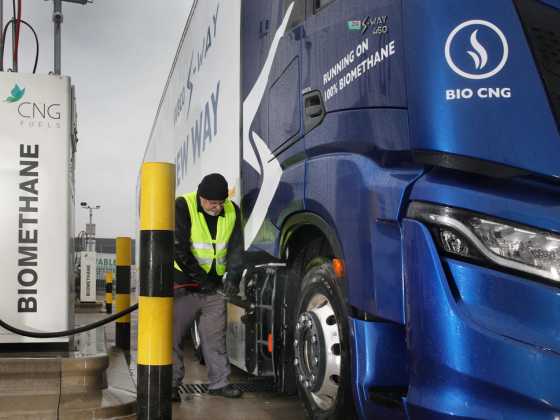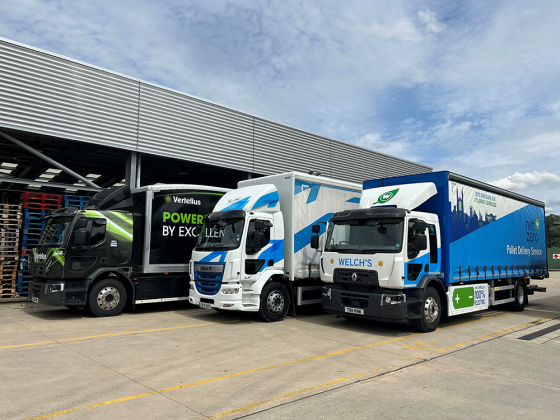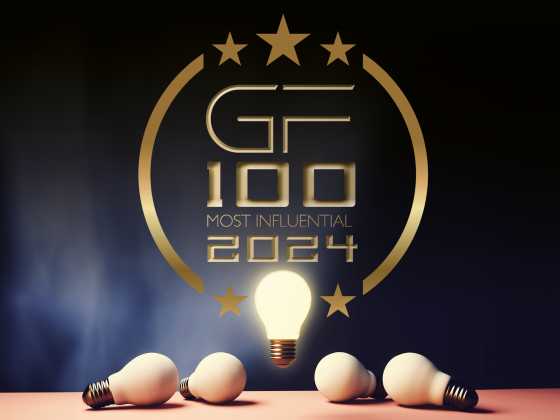Smart Mobility: Building the pathway for electric vehicles
With Europe expected to account for a quarter of electric vehicle sales by 2020, Cosmin Codrea, research programme officer in the components Unit of the European Commission, outlines recent developments in the European Green Cars Initiative in the context of European research and development support for electro-mobility.
 Transport is a major driver of Europe’s economic competitiveness and growth. The transport industry and the related equipment manufacturing accounts for seven per cent of the Union’s GDP. Transport is, at the same time, a societal challenge. It is responsible for over 20 per cent of the overall energy consumption and for 25 per cent of the CO2 emissions in the EU. Road transport is by far the largest consumer and emitter, with a share of over 80 per cent in energy consumption and over 90 per cent in greenhouse gas emissions.
Transport is a major driver of Europe’s economic competitiveness and growth. The transport industry and the related equipment manufacturing accounts for seven per cent of the Union’s GDP. Transport is, at the same time, a societal challenge. It is responsible for over 20 per cent of the overall energy consumption and for 25 per cent of the CO2 emissions in the EU. Road transport is by far the largest consumer and emitter, with a share of over 80 per cent in energy consumption and over 90 per cent in greenhouse gas emissions.
The scarcity of fossil fuels, the environmental burden, the need for efficient and sustainable use of energy sources and the increasing rates of urbanisation leading to heavy traffic congestion and air pollution in cities are all demanding new mobility means and models. Citizens, the industry and public authorities are all equally challenged.
The European automotive industry - vehicle manufacturers, suppliers and aftermarket - is a key sector for the European economy, providing over 12 million direct and indirect jobs and a positive contribution to the trade balance. Europe has several high-quality premium vehicle brands, a large and diversified volume segment and worldwide strongest Tier 1 suppliers. European companies are spending more on automotive R&D (30 billion Euro per year) than in other sectors or world regions. The industry is strong and organised. However the decreasing European market and the rapid growth of third markets are expected to reshape this sector in the coming decades. Overcapacity and high cost-pressure are further important factors.
The Role of the EU
To tackle short to long-term challenges in transport closely linked to industrial, environmental, energy and social policy, the European Union is assuming the role of coordinating efforts and raising awareness across the continent. Major impact is achieved through policy-based adjustment and streamlining of the regulatory framework on one hand and the direct support to research and innovation on the other. This is complemented by efforts for interoperability and standardisation, testing and piloting and the support of public procurement.
There is a range of EU policy actions addressing the abovementioned challenges to provide a frame for the necessary transformations in the transportation and automotive sector. Among them, the 2008 Climate and Energy Package has set the all-encompassing ‘20-20-20 targets’ aiming at 20 per cent improvements in greenhouse gas emissions, share of renewables and energy efficiency, all to be met by 2020. The 2011 Transport White Paper has defined key goals in transport by 2050, including a 60 per cent cut in emissions and the banning of conventionally fuelled cars in cities. The re-launched CARS21 initiative has gathered industrial stakeholders and public authorities to agree on a long-term vision for the automotive industry, with concrete implementation pathways. The final report was published in summer 2012 (tinyurl.com/847u436).
With respect to EC regulation, the CO2 emission thresholds for vehicles are currently the main driver for technological development. From 2020 onwards, this regulation sets a target of 95 g CO2/km as average emissions for the new fleet of passenger cars and 147 g CO2/km for vans.
Research, development and innovation are supported through several instruments and EU programmes, mainly by means of the European Green Cars Initiative Public-Private Partnership (PPP). It is complemented by the Seventh Framework Programme for Research and Technological Development (FP7) and its continuation from 2014 onwards - Horizon 2020, by the Competitiveness and Innovation Programme (CIP), as well as by ENIAC, ARTEMIS and the Fuel Cells and Hydrogen Joint Undertakings.
European Green Cars Initiative
The European Green Cars Initiative (EGCI) is one of the three Public-Private Partnerships (PPP) of the European Economic Recovery Plan announced in 2008. It supports R&D on E E technologies and infrastructures essential for breakthroughs in the use of renewable and non-polluting energy sources, safety and traffic fluidity. A total of one billion Euro is made available for R&D through joint funding programmes of the European Commission, the industry and the member states, with EU grants of 500 million Euro in total. In addition, European Investment Bank loans of four billion Euro are open to applications from stakeholders involved in transport research.
Due to the horizontal character of the topic, various services of the European Commission work tightly together in this PPP: DG Research and Innovation, DG for Communications Networks, Content and Technology (DG CONNECT, former DG Information Society and Media), DG Mobility and Transport, DG Energy, DG Environment and DG Enterprise and Industry. An industrial advisory group plays the role of a high-level forum for the strategic dialogue between the European Commission and the industrial sectors concerned. The industry is represented there through the European Technology Platforms ERTRAC, EPoSS and SmartGrids. They assume the elaboration of strategic roadmaps and make recommendations for the annual calls for proposals.
Under the EGCI, the R&D topics are structured along three streams - electrification, heavy-duty and logistics - with a main focus on the electrification of mobility and road transport. Three rounds of annual calls for proposals have been launched since July 2009, and in response, more than 80 collaborative research projects have started or are currently being launched. They are mainly pre-competitive in nature.
A natural question is raised concerning the added value of this instrument, especially in relation to national programmes and the intensity of private funding within the industry itself. The answer is provided directly by the industrial stakeholders: the initiative has created an effective framework for swift cross-border cooperation across the value-chain. Furthermore, it facilitates larger demonstration pilots and interoperability projects difficult to implement on a national level.
Electrification and ICT
Mid-to-long-term greenhouse gas and emission reduction targets in transport and oil dependence mitigation are accelerating the development of propulsion systems beyond the internal combustion engine. Electric and hybrid technologies are solutions that are gradually penetrating the global markets at a pace depending on a) CO2 regulation, b) oil price and availability, c) the cost of energy storage, d) the availability of infrastructure and c) of a green energy mix. The European industry is committed to electrification and Information and Communication Technologies (ICT) will have a high share of ca. 40 per cent in the value of an electric car. They are likely to become an increasingly important brand differentiator.
Europe is expected to account for more than 25 per cent of global electric vehicle sales in 2020. This assumes the availability of early-adopter consumers and governments to intensively promote electric vehicle programmes. Overall, there seems to be a broad consensus around a 10 per cent penetration of electric vehicles in 2020.
Europe has excellent research on basic components, electronics, microsystems and smart systems and is leading in sensor technology, power electronics and electric motors. For instance, in 2008, 45 per cent of the worldwide 1.7 billion Euro revenue in automotive sensors was with European companies. There are leading European IC manufacturers for high voltage, high power and smart components. Embedded software and architectures are key to future automotive ICT systems and Europe took a lead in layered systems with AUTOSAR.
The European electronics industry is cross-linked to a large extent to automotive applications. Electro-mobility is a chance for Europe to lead in automotive electronics with a significant impact on employment and further spillover effects, e.g. on the consumer industry. Suppliers and component developers are system integrators providing 70-75 per cent of the value of a vehicle. They are closely linked with vehicle OEMs and will benefit from vehicle electrification independent of technology, i.e. battery, hybrid or fuel-cell. Electro-mobility is at present one of the few job-creating sub-sectors of the automotive industry, with OEMs also retraining staff to gain competences in electrification.
The overall efficiency gains made possible through vehicle electrification are considerable and would alone justify this technological pursuit. They encompass not only the highly efficient electric motor and an optimised transmission, but also the benefits of electrified auxiliaries and cooperative systems. With the present electricity mix, there is no general consensus on a clear well-to-wheel emissions benefit of electric cars over conventionally fuelled ones. However, the continuously increasing share of green electricity is giving this technology a further competitive edge.
The decade ahead
ICT are transformative technologies underpinning innovation and competitiveness across a broad range of public and private markets and sectors. Over the next decade, the transformative impact of digital technologies, components, smart and embedded systems, ICT-enabled infrastructures and interoperable services will be increasingly visible in transport and mobility. A ‘Smart Mobility’ concept encompasses various technologies paving the way for the electric, smart, efficient and connected car of the future.
DG CONNECT is responsible for the ICT theme within the Green Cars Initiative, with a funding budget of 120 million Euro. The focus lies on the objective ‘ICT for Fully Electric Vehicles’ addressing vehicles with a significant range on pure battery based power.
The first three calls for proposals yielded 25 research projects with a strong industrial and SME participation. They cover a large spectrum of vehicle electrification technologies, e.g. electric powertrains, energy and battery management, electronic architectures, electrified auxiliaries, vehicle dynamics, stability, and safety as well as vehicle-to-grid and cooperative systems. The major goals of this investment are the improvement of the cost/performance ratio of the vehicles and their integration into the infrastructure with a positive impact on the competitiveness of the automotive industry.
In addition, four projects under the ‘ICT for Transport’ theme of the ICT Policy Support Programme of the Competitiveness and Innovation Framework Programme (CIP) were launched at the beginning of 2012.
At the same time, an external contractor has been commissioned to carry out a study assessing ‘The impact of ICT R&D on the large-scale deployment of electric vehicles’. Key stakeholders have been consulted to provide the state of play of the automotive sector as well as recommendations for future R&D activities in this context. The final report of the study will be made public at the end of 2012.
ICT for Fully Electric Vehicles
The fourth and last call for proposals under FP7 has been recently launched and will close on December 4th 2012. It has a funding budget of 40 million Euro for two research target outcomes (39 million) and one Coordination and Support Action (1 million). Research projects may address one or both R&D topics, i.e. ‘Advanced System Architecture’ and ‘Comprehensive Energy Management’. The Coordination Action is expected to focus on SME activities and international cooperation. All details concerning the rules of participation, the target outcomes and the expected impact of this and the simultaneous coordinated calls of the EGCI are available through the FP7 Participants’ Portal on Cordis. The ICT Proposers’ Day 2012 is an opportunity for stakeholders to network, present ideas for proposals and establish consortia. The high success rate of the previous calls of 40-50 per cent is expected to be a strong incentive for participation.
Potential participants and consortia are encouraged to pursue a high level of vehicle integration and exploitation. This usually implies that the proposed project includes an end-user and/or a vehicle manufacturer. Fleet operators are considered possible early adopters of electric vehicles, usually taking advantage of specificities like operation in defined areas with predictable load and daily ranges, a central planning of daily routes and the availability of at least one central charging/fuelling station. In this context, they could become valuable consortium partners or contribute to so-called pre-commercial procurement schemes.
Horizon 2020
Horizon 2020 is the new framework programme for research and innovation for the period 2014-2020. The Commission proposal foresees a budget of 88 billion Euro (current prices) for research activities with a main focus on innovation. It will preserve the stakeholder engagement, maintaining and possibly extending the Joint Undertakings and the PPPs. Fewer, more flexible and user-friendly funding schemes are proposed with a reinforced support for SMEs.
The programme is thematically structured along three pillars, i.e. Scientific Excellence, Industrial Competitiveness and Societal Challenges. While the latter covers the ‘Smart, green and integrated transport’ theme, electric vehicle technologies and building blocks are likely to be supported also under the theme ‘Leadership in enabling industrial technologies’ of the Competitiveness pillar. The continuation of the EGCI PPP is currently explored by public authorities through a consultation process with representative industrial stakeholders (tinyurl.com/bwaa3zt)
Conclusions
Smart electric mobility is a major priority to address acute global challenges and is an opportunity for Europe to lead and innovate in automotive electronics and ICT. The Green Cars Initiative PPP has been paving the way for focused, cooperative research, development and coordination actions. All in all, investing in research and innovation for a smarter, greener and integrated transport system and the competitiveness of the automotive sector is expected to make an important contribution to the Europe 2020 goals of smart, sustainable and inclusive growth.
About the author
Cosmin Codrea is research programme officer in the ‘components’ Unit of the European Commission, Directorate-General for Communications Networks, Content and Technology - DG CONNECT. He is coordinating the objective ‘ICT for Fully Electric Vehicles’ under the European Green Cars Initiative Public-Private Partnership.
Disclaimer
The information and views set out in this article are those of the author and do not necessarily reflect the official opinion of the European Union. Neither the European Union institutions and bodies nor any person acting on their behalf may be held responsible for the use which may be made of the information contained therein.






